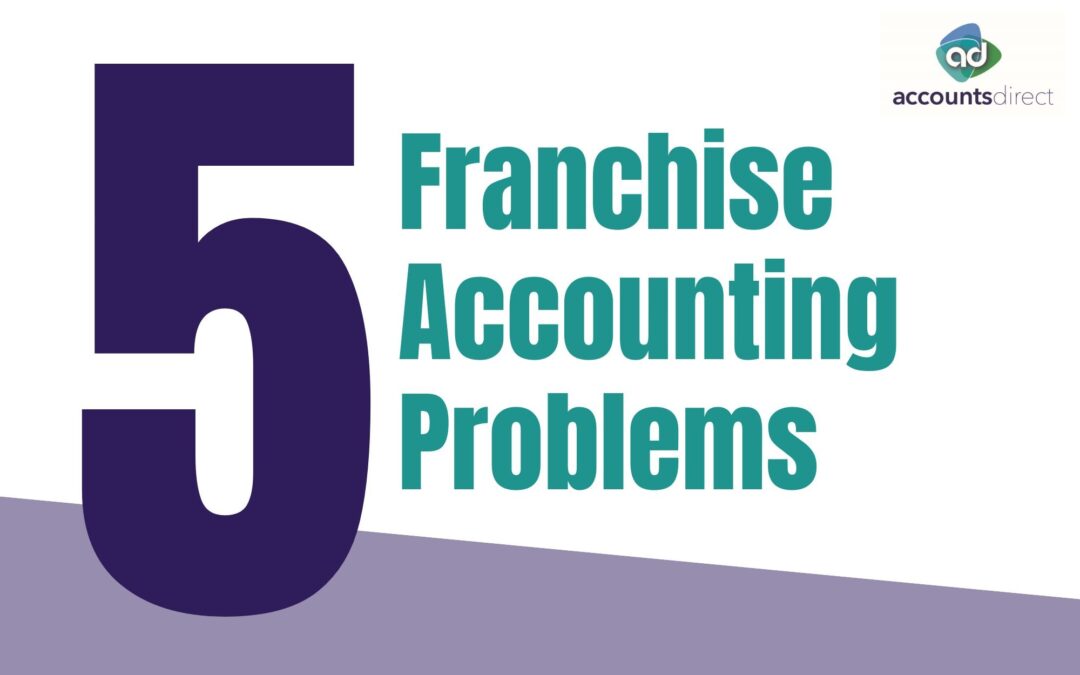As a franchisee, it’s important to understand any specific franchise accounting problems you may face. Knowing which issues you’re more likely to encounter will help you to address them quickly and give your franchise a greater chance of success.
Here are 5 accounting problems your franchise may face and how to overcome them.
5 franchise accounting problems and how to overcome them
1. Start up costs
One of the first hurdles you’ll need to overcome as a franchisee is the high startup costs. You’ll need to pay for a number of things upfront before you see any profits from your franchise business, including:
- a sign up fee for joining the franchise network
- the costs of setting up in a prominent store location
- wages for training employees.
Because of this, it’s essential to outline a clear budget and business plan from day one. Work out how much you’ll need to borrow and make sure you can afford to run your franchise after you’ve covered all the initial costs.
Setting out your plans from the very start will help you grow your franchise into a successful business.
2. Running costs
Franchisees typically have more running costs to contend with. While all business owners deal with overheads like energy costs and tax bills, you’ll also need to pay monthly franchise fees.
Keeping a close eye on your cashflow is essential. Find out what your recurring expenses are so you can budget for them more easily. Do you have enough cash in the bank to cover this month’s franchise fees and payroll?
You should also make sure you put enough money aside for additional costs such as building maintenance or onboarding new staff.
3. More debt
Higher costs usually means higher debt. Unless you can pay the start-up fees outright, you’ll need to secure a loan to join the franchise. In some cases, your franchisor may guarantee your bank loan or even provide the funds for you.
If you take on funding to finance your franchise, you should:
- make sure you have flexibility so you can refinance if you find a better option.
- regularly review your debt with an expert to make sure you’re using the most cost-effective finance option.
- look at your cashflow to ensure you’re able to cover debt payments.
Setting up systems for your repayments can help you manage debt more easily. Cloud accounting technology allows you to automate payments so you can avoid late fees. You could also ring-fence your repayment money to ensure you don’t use it for other things.
4. High sales targets
Many franchises are built on a business model focused on selling products and services at low prices. This often results in low profit margins. Without careful planning, one month of poor sales could become a big problem.
As mentioned, it’s important to keep a close eye on costs to control the risks — but making the most of your resources can also help you hit high sales targets.
Many franchisors will provide you with advice on how to boost sales, and you may be able to speak with fellow franchisees to find out what works for them.
You may also benefit from working with an accountant or franchise consultant. A financial expert can help you manage your finances more easily and offer guidance on how to boost business performance.
5. Managing employees
While many small business owners start out on their own and hire people later down the road, franchisees often need to employ staff from the very start.
That means you’ll have to manage payroll and human resources on top of your other responsibilities. This extra administrative burden can be difficult to handle when you’re trying to grow your franchise.
Bringing in payroll and HR professionals may give you more breathing room. Outsourcing to experts outside of your organisation won’t just save you time — it’ll also reduce the chance of errors in your payroll.
Get in touch with us about your franchise accounting problems.

